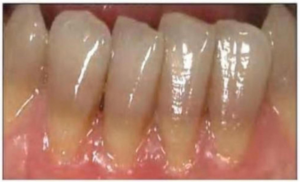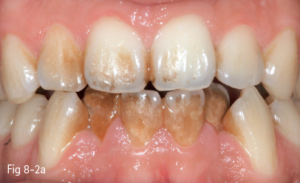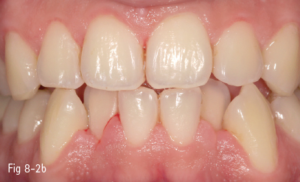The Ultimate Guide for A Smoker’s Teeth Whitening Journey

There are different reasons why the colour of your teeth has become darker than it was before. If you are a smoker, it could be the main reason why. Smoking constitutes a great impact on one’s teeth because of the nicotine and other chemicals that could potentially stain your pearly whites.
The good thing about all this? You are not alone in this journey. In reality, Many smokers experience the same sentiments, which is why they seek effective solutions to restore their bright smiles.
So, can smokers’ teeth be whitened? Let’s read through this guide to know along with the best methods, tips, and what to expect on your journey to a whiter smile.
What You Need to Know About Teeth Discolouration in Smokers
Before we dive in on how you can get your teeth discolouration treated, let’s talk about how teeth can appear yellow. There are two types of stains that affect a person’s teeth:
- Intrinsic Staining: This type of staining occurs when the inner structure of the tooth (the dentin) becomes discoloured. This can happen due to ageing, certain medications, or trauma to the tooth. Intrinsic stains are usually yellow or brown and can be more challenging to treat.

- Extrinsic Staining: This type of staining affects the outer layer of the tooth (the enamel). Common causes include smoking, drinking coffee, tea, or red wine, and consuming other staining foods and beverages. Extrinsic stains are typically easier to remove through regular cleaning and whitening treatments.


How Can Smoking Affect Your Teeth?
While we previously said that smoking can cause extrinsic staining, it is also actually an intrinsic stain. Why do we think that is? In the extrinsic point of view, the main culprit behind those are the components of tobacco products, which are mainly tar and nicotine. The nicotine and tar in tobacco can cause your teeth to turn yellow or even brown over time.
On the other hand, smoking contributes to intrinsic stains as it affects your gums and overall oral health. This makes it more challenging to maintain a bright, healthy smile. Aside from the stains, theeffects of smoking can also get too serious like getting more prone to oral cancer, gum disease, decay on the roots of the teeth, and tooth loss.
Can Smokers’ Teeth Be Whitened?
So, do you think a smoker’s tooth can still be whitened? There’s hope because smokers’ teeth can still be whitened! However, it might require a bit more effort and maintenance compared to non-smokers. The best person you can talk to about that is your dentist. They will give you different options for you to take if you want to get your teeth whitened.
Whitehorse Dental offers different options forteeth whitening to ensure you get the best treatment plan for your stained teeth.
Best Teeth Whitening for Smokers
When it comes to the best way to whiten smokers’ teeth, there are several options to consider. Each has its pros and cons, and the right choice depends on your specific needs and preferences. Before you decide on a plan, make sure to consult with a dentist first for your condition.
Professional Teeth Whitening
One of the most effective ways to whiten smokers’ teeth is through professional teeth whitening treatments. These treatments are performed by dental professionals and can deliver significant results in a short amount of time. The method we would recommend is a professionally made take home whitening kit. This kit includes custom made trays to fit your teeth and a professional-grade whitening gel. You’ll need to wear the trays for a couple of hours each day for about two weeks to see the best results.
Dental Cleaning
If your teeth stains are not yet too severe, a dental cleaning can still help remove the stain caused by smoking. Especially when it is an extrinsic stain where it only discolours the enamel of the teeth, our specialised air polishing method using the EMS Airflow machine is ideal for removing all extrinsic stains. t. Your dentist can also provide personalised advice on how to maintain a white smile.
Over-the-Counter Whitening Products
There are also many over-the-counter (OTC) teeth whitening products available for milder cases, such as whitening strips, gels, and toothpaste. While these products can be effective for mild staining, they may not be as powerful as professional treatments, especially for smokers’ teeth.
How to Whiten Smokers’ Teeth: Tips and Tricks
Maintain Good Oral Hygiene
We have heard this over and over again, but it will never not be effective in preventing your teeth from getting severe dental problems. Brush your teeth twice a day, clean in between the teeth with interdental brushes, and visit your dentist regularly for cleanings and check-ups. The rule of thumb is every 6 months, but smokers might need more frequent visits.
Avoid Staining Foods and Beverages
Keep your teeth in their state by trying to avoid foods and drinks that can cause staining, such ascoffee, tea, red wine, and dark-coloured sauces. If you do consume these items, rinse your mouth with water afterwards to minimise staining.
Consider Quitting Smoking
We understand that it might be challenging for some people to quit—but quitting it is one of the best things you can do for your oral health and overall well-being. Smoking not only affects your immune system and stains your teeth, but it also increases your risk of oral cancer and other health issues.
Hello Bright Teeth, Goodbye Stains!
Teeth whitening for smokers is entirely possible with the right approach and commitment—And achieving a bright smile as a smoker requires dedication and a two-pronged approach: whitening treatments and lifestyle adjustments.
If you’re dedicated to having brighter teeth and a dazzling smile, our dental pros are here to talk about ourteeth whitening options. Book an appointment with Whitehorse Dental today to achieve the bright smile you deserve with personalised whitening solutions and expert care.
Pick a schedule that works for you, or you can also call our clinic at (03) 8838 8820.



